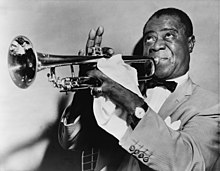National Theatre, Singapore

Previously an important landmark, the former National Theatre was built on the slope of Fort Canning Park along River Valley Road in the Museum Planning Area of Singapore. The theatre, with a capacity of 3,420 seats, was officially opened on 8 August 1963 to commemorate Singapore's self-government and was the first and largest national theatre in Singapore back then.[1] It was the venue for various international performances, universities' convocations and the National Day rallies until it was demolished in mid-1986.
History
Costing S$2.2 million to build, the theatre was designed by local architect Alfred Wong in 1963 after his firm won a design competition to build the first national theatre. It had 3,420 seats and was built with funds jointly donated by the Singapore government and the public through "a-dollar-a-brick" campaign with song requests made on radio.[2] On 14 May 1964, The then Minister for Culture, S Rajaratnam, formally received the keys of the theatre from the company which carried out the construction said: "The theatre provides a good example of how the success of any effort depends ultimately on the co-operation and dedication of people from all walks of life."[3]
Architecture
The most significant feature of the National Theatre was its huge 150-tonne cantilevered steel roof which stretched to the slopes of Fort Canning; a five-pointed facade which represented the five stars of the Singapore flag in the same way as its outdoor fountain was supposed to represent the crescent moon. The theatre had no side or rear walls and only the huge roof shielded the audience from the elements.[2] It also had a revolving stage which was rarely used and cost S$10,000 annually to maintain.[1]
Notable events

Many important performances were staged at the National Theatre from 1966 to 1982, the annual National Day Rally was held at the theatre too. Its first show, the Southeast Asian Cultural Festival, was attended by 11 Asian countries such as princesses from Cambodia, glamorous film stars from Hong Kong and folk dancers from all neighbouring countries. These performers were taking part for the first time in which the First President of Singapore, Encik Yusof bin Ishak described the event as a "South-East Asian cultural renaissance".[4]
In the 1960s and early 1970s, many world famous and legendary personalities that have performed at the theatre, included the following:[1]
- The Russian Bolshoi Ballet
- The Sadler's Wells Ballet
- The Louis Armstrong Jazz Band
- The Duke Ellington Orchestra
- Woody Herman & his Orchestra
- Johnny Mathis
- Shirley Bassey
- The Bee Gees
- The Hollies
- The Walker Brothers
- The Yardbirds
- Herman's Hermits
The National University of Singapore used to hold their annual convocations at the National Theatre until the early 1980s. The then future Prime Minister of Singapore, Goh Chok Tong attended his convocation at the theatre on 6 June 1964.[5] Other notable events such as the Miss Singapore[6] and Mr Universe[7] were regularly held at the National Theatre too.
Closure and demolition

In the early 1980s, the theatre was labelled structurally unsafe due to defects discovered in its cantilever roof. Also, with the proximity of the proposed Central Expressway underground tunnel to the Theatre coupled with its declining use due to the lack of air-conditioning, led to a government decision to demolish the National Theatre.[2]
Without any ceremony or fanfare, the National Theatre boarded up its doors and pulled down the curtains on an eventful era for local theatre. Its last performance was held on 15 January 1984. Another landmark that was located within close proximity to the theatre, the Van Kleef Aquarium suffered the same fate too. The National Theatre Trust moved to the smaller Kallang Theatre in March 1986. Demolition works took place between June to August 1986, just as the Kallang Theatre opened to its first performance in June of that year.[1]
Today, its former site has been marked as a Heritage Site by the National Heritage Board for "signifying a spirit of self help and nationhood in the early days of nation building".[8]
See also
References
Notes
- ^ a b c d Vernon Cornelius. "National Theatre". National Library Board, Singapore. Retrieved 2007-07-09.
- ^ a b c Tan, "The National Theatre", p. 20.
- ^ National Archives of Singapore, Record No: PCD0189-0097 dated 14 May 1964.
- ^ National Archives of Singapore, Record No: PCD0189-081 dated 8 August 1963.
- ^ National Archives of Singapore, Record No: PCD0189-082 dated 6 June 1964.
- ^ National Archives of Singapore, Record No: PCD0207-004 dated 15 May 1965.
- ^ National Archives of Singapore, Record No: 19980005353-0033 dated 14 May 1967.
- ^ Information obtained from on-site information board by the National Heritage Board of Singapore.
Bibliography
- Tan, Wee Kiat &; et al. (2007). Singapore’s Monuments & Landmarks: A Philatelic Ramble. Singapore: Preservation of Monuments Board, Singapore Heritage society, Singapore Philatelic Museum. ISBN 978-981-05-7809-1.
{{cite book}}: Explicit use of et al. in:|first=(help) - "Curtains for a dame". The Straits Times. 21 July 1986.
- "All that's left of a grand old dame". The Straits Times. 6 June 1986.
